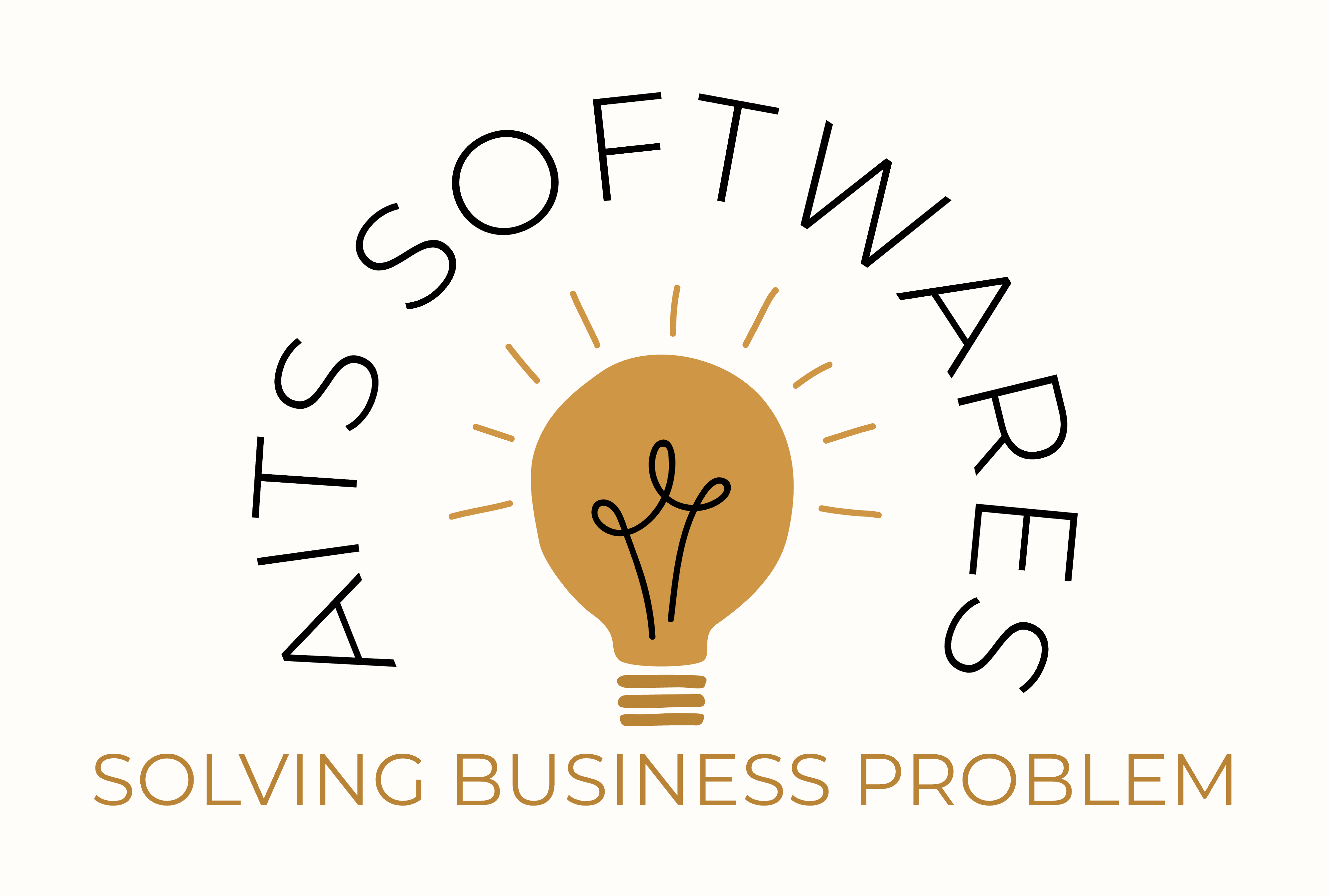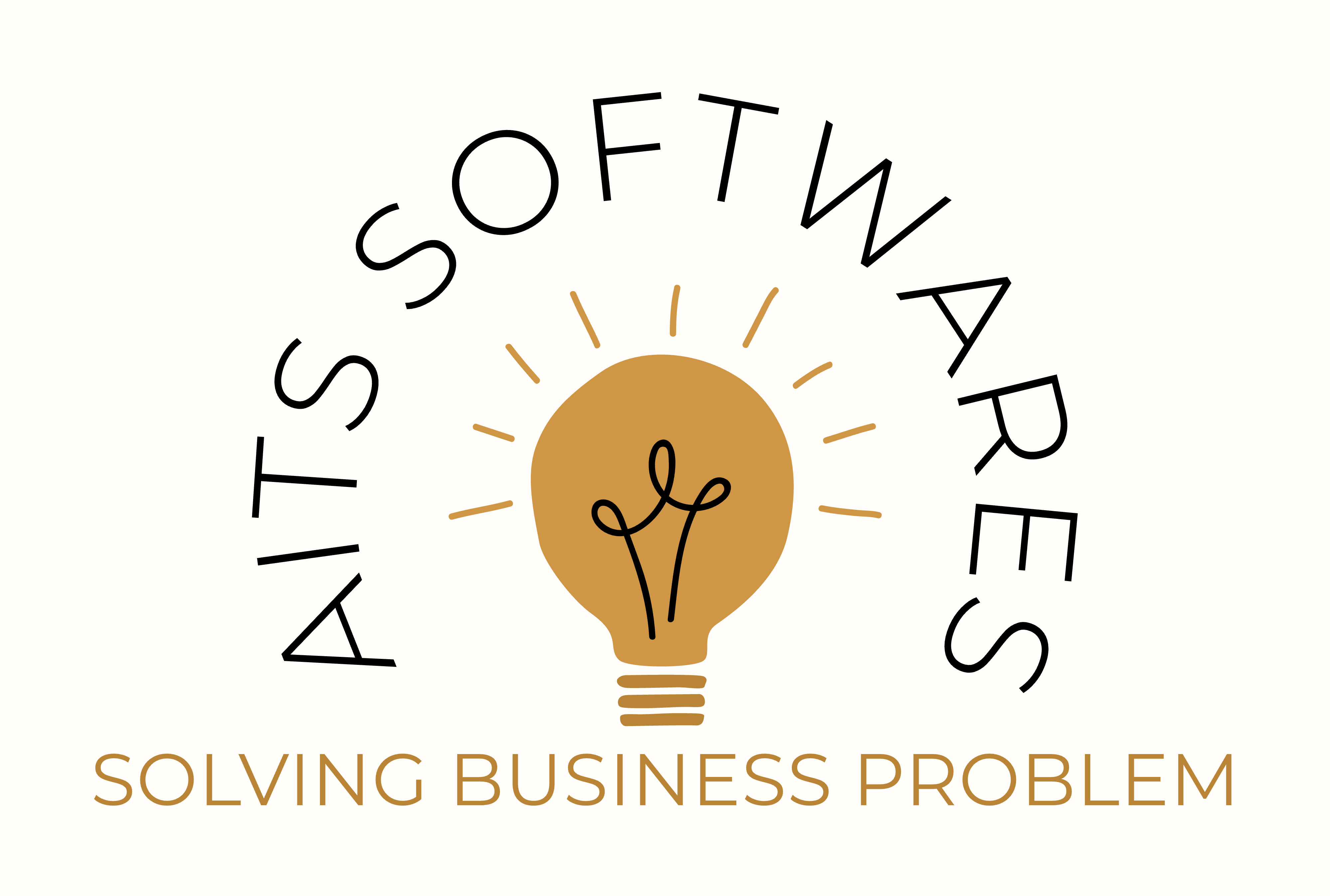Search by Categories
CRM by AITS Softwares

CRM by AITS Softwares
Customer Relationship Management (CRM) refers to a strategy, technology, and set of practices that businesses use to manage and analyze customer interactions and data throughout the customer lifecycle. The primary goal of CRM is to improve business relationships, enhance customer retention, and drive sales growth. By consolidating customer information into one central platform, CRM systems help companies build stronger, more personalized relationships with their customers.Key Features of CRM Systems:1. Contact Management:o CRMs provide businesses with a centralized database where they can store detailed information about their customers, including contact details, communication history, purchase behavior, and preferences. This enables better customer segmentation and targeted outreach.2. Sales Management:o CRM systems help track and manage the sales pipeline, from lead generation to deal closure. Sales teams can monitor opportunities, set follow-up tasks, and prioritize leads based on their likelihood to convert. It provides visibility into sales progress, helping sales teams close more deals and optimize their efforts.3. Marketing Automation:o Many CRM systems include marketing automation tools that enable businesses to create and execute targeted marketing campaigns. These tools can automate email marketing, social media outreach, and content distribution. CRMs also track the effectiveness of marketing campaigns, providing insights into what works and what doesn't.4. Customer Support and Service:o CRMs allow businesses to manage customer support requests, tickets, and case resolutions. They also help track customer service interactions, ensuring that issues are resolved in a timely and efficient manner. Support teams can access a customer's entire interaction history, enabling them to provide more informed and personalized assistance.5. Analytics and Reporting:o CRM systems offer advanced reporting and analytics features that allow businesses to track key metrics such as sales performance, customer satisfaction, and marketing campaign effectiveness. These insights help businesses make data-driven decisions and improve overall strategy.6. Task and Activity Management:o CRM systems allow users to schedule and manage tasks such as follow-up calls, meetings, and appointments. This ensures that teams stay organized, follow through on commitments, and maintain consistent communication with customers.7. Collaboration:o Many CRMs enable collaboration among team members by sharing customer data, notes, and sales opportunities. This fosters better communication between departments (sales, marketing, customer support), allowing businesses to provide a seamless customer experience.8. Customization and Integration:o CRMs can often be customized to fit the specific needs of a business, such as adding custom fields, workflows, or reports. They can also be integrated with other software systems such as email platforms, social media, accounting tools, and marketing platforms to provide a unified solution.9. Mobile Access:o Many modern CRM platforms offer mobile applications, allowing sales and service teams to access customer data and manage tasks while on the go, improving responsiveness and productivity.Types of CRM:1. Operational CRM:o Focuses on automating and improving business processes related to customer interactions. It helps streamline daily operations such as sales, marketing, and customer service. The goal is to enhance customer experiences by improving efficiency and providing seamless interactions across channels.2. Analytical CRM:o Primarily focused on analyzing customer data to help businesses gain insights into customer behavior, preferences, and trends. This type of CRM supports decision-making by identifying patterns in customer data and improving targeting for marketing and sales strategies.3. Collaborative CRM:o This type of CRM emphasizes collaboration across various teams and departments (sales, marketing, customer support, etc.). The focus is on improving communication and sharing customer information in real-time, so teams can work together to provide better service and a more personalized experience for the customer.Benefits of CRM Systems:1. Improved Customer Relationships:o By having access to comprehensive customer data, businesses can better understand their customers' needs, preferences, and buying behaviors. This allows them to personalize their interactions, leading to stronger and more positive relationships.2. Increased Sales:o CRM systems streamline the sales process, improve lead management, and provide sales teams with the tools they need to prioritize leads and close deals more effectively. By tracking customer interactions and automating tasks, businesses can increase conversion rates and grow revenue.3. Enhanced Customer Service:o With CRM systems, support teams can access detailed customer histories, which enables them to resolve issues quickly and efficiently. By providing better service, businesses can improve customer satisfaction and loyalty.4. Better Data Insights:o CRM systems offer advanced analytics that helps businesses understand customer behaviors, identify trends, and optimize their sales and marketing efforts. This leads to more informed decision-making and allows companies to fine-tune their strategies.5. Increased Efficiency and Productivity:o Automation of routine tasks such as sending follow-up emails, generating reports, and assigning leads can save significant time. CRM systems also help eliminate data silos, streamline workflows, and enable employees to work more collaboratively.6. Improved Communication:o By centralizing customer data, CRM systems facilitate better communication across teams. Sales, marketing, and support teams all have access to the same customer information, which leads to more consistent and coordinated communication with customers.7. Customer Retention:o By better understanding customers' needs and maintaining personalized communication, businesses can strengthen customer loyalty and increase retention rates. CRMs can track milestones like renewals, follow-ups, and anniversaries, helping businesses stay engaged with customers.CRM Deployment Options:1. Cloud-Based CRM:o Cloud CRMs are hosted online and can be accessed from anywhere with an internet connection. They offer flexibility, scalability, and low upfront costs, as they are typically available through a subscription model (SaaS). Popular cloud CRMs include Salesforce, HubSpot CRM, and Zoho CRM.2. On-Premise CRM:o On-premise CRMs are installed and hosted on a company’s own servers. These solutions give businesses complete control over their data and infrastructure but require a significant upfront investment and ongoing maintenance. Some businesses prefer this option for security reasons or when they have specific customization needs.3. Hybrid CRM:o Hybrid CRMs combine both cloud and on-premise elements, offering flexibility in terms of data storage and deployment. Businesses can use cloud-based features for certain functions while keeping sensitive data on-premise.Popular CRM Systems:• Salesforce: One of the most popular and comprehensive CRM platforms, offering solutions for sales, marketing, and customer service, along with deep customization and integration options.• HubSpot CRM: A free CRM that offers essential features like contact management, email tracking, and sales pipeline management, along with a suite of marketing tools.• Zoho CRM: A customizable CRM that offers sales automation, reporting, and customer support features, along with a wide range of integrations.• Microsoft Dynamics 365: A CRM solution integrated with Microsoft’s suite of business applications, offering tools for sales, marketing, and customer service.• Pipedrive: A sales-focused CRM with a user-friendly interface designed to streamline the sales pipeline and help sales teams stay organized.Who Should Use CRM Systems?CRM systems are valuable for businesses of all sizes, but they are particularly beneficial for:• Sales Teams: To track leads, manage the sales pipeline, and increase conversions.• Customer Support Teams: To provide personalized and efficient service by having easy access to customer data.• Marketing Teams: To automate marketing campaigns and measure campaign effectiveness.• SMBs and Large Enterprises: CRM systems are scalable, making them suitable for both small businesses and large organizations.In conclusion, CRM systems are essential tools for businesses that want to foster better customer relationships, improve operational efficiency, and drive sales growth. By centralizing customer information, automating processes, and providing powerful insights, CRMs enable businesses to enhance their customer experience and stay competitive in the market.
Key Features
Rating
Software Rating
0 average based on 0 reviews.
Operation System
windows
Device
desktop,mobile,tablet,ipad
Software Images

User Reviews
Top Search Categories
- Accounting Softwares
- Artificial Intelligence Softwares
- Billing & Invoicing Softwares
- Business Intelligence Softwares
- Call Center Softwares
- CRM Softwares
- Digital Marketing Softwares
- E-commerce Softwares
- ERP Software
- Event Management Software
- Architecture Softwares
- Facility Management Software
- Financial Management Software
- Firewall Management Software
- GST Software
- Helpdesk Software
- Hospital & Lab Management Software
- Hotel Management Software
- Human Resource Software
- Insurance Software
- Learning Management System
- Legal Software
- Live Chat Software
- Manufacturing Software
- Marketing Software
- Medical Software
- Project Management Software
- Property Management Software
- Retail POS System
- School & Library Management Software
- Supply Chain Management Software
- Tour & Travel Management Software
- Transport Management Software
- VPN Software
- Warehouse Management System


